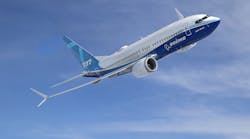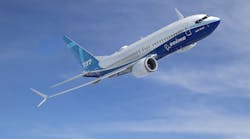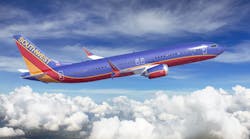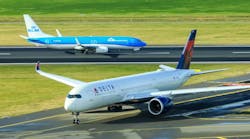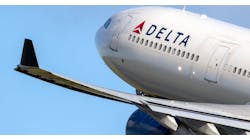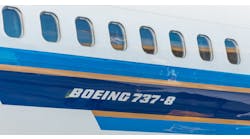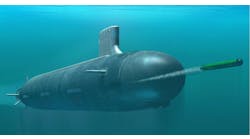The Boeing 737 MAX aircraft appears set to return to service during the first quarter of 2020 according to European Air Safety Administration executive director Patrick Ky. The EASA head said that agency is on track to approve the narrow-body aircraft to resume commercial service in January, but that individual EU nations’ civil aviation authorities as well as the airline operators may require more time to implement the service resumption.
Ky’s comments were reported from EASA’s annual safety conference in Helsinki, Finland.
The 737 MAX is Boeing’s best-selling aircraft but it has been idled worldwide since March 2019, following the second deadly crash of a jet in a space of five months. A total of 346 passengers and crew members were killed in the incidents, involving Indonesia’s Lion Air and Ethiopian Airways.
Boeing halted deliveries of the 737 series and reduced the production rate to 42 jets/month. Most of its production is concentrated on the 737 MAX (it has an order backlog of more than 4,600 of the 737 MAX) though it continues to produce the previous 737 Next Generation version, too.
Boeing has determined that the crashes were caused by a Maneuvering Characteristics Augmentation System (MCAS), also known as "anti-stall" software, developed to off-set a side-effect of the more fuel-efficient engines adopted for the new version of the 737: because of the engines’ larger size, the planes’ aerodynamic behavior is altered, and the MCAS is meant to counteract a stalling tendency.
The new MCAS will draw operational data from two sensors, rather just one.
EASA and its U.S. counterpart, the Federal Aviation Administration, are conducting separate reviews of the updated MCAS. Neither FAA nor Boeing has commented on the January date for approval of the revised system.
EASA also plans to conduct simulator and flight tests with the MCAS before approving resumed 737 MAX commercial service in Europe. Ky reportedly said EASA aims to complete a detailed software review by December 1, followed by flight tests.
Norwegian Air is the major European airline affected by the 737 MAX suspension from service. Another carrier, RyanAir, is awaiting the start of delivery for 210 of the aircraft, and now indicated it may not have the jets available until mid-2020.
In the U.S. market, Southwest Airlines is the largest operator of the 737 MAX. It has canceled 737 MAX flights through February 2020, as has United Airlines. American Airlines has canceled the flights through January.
